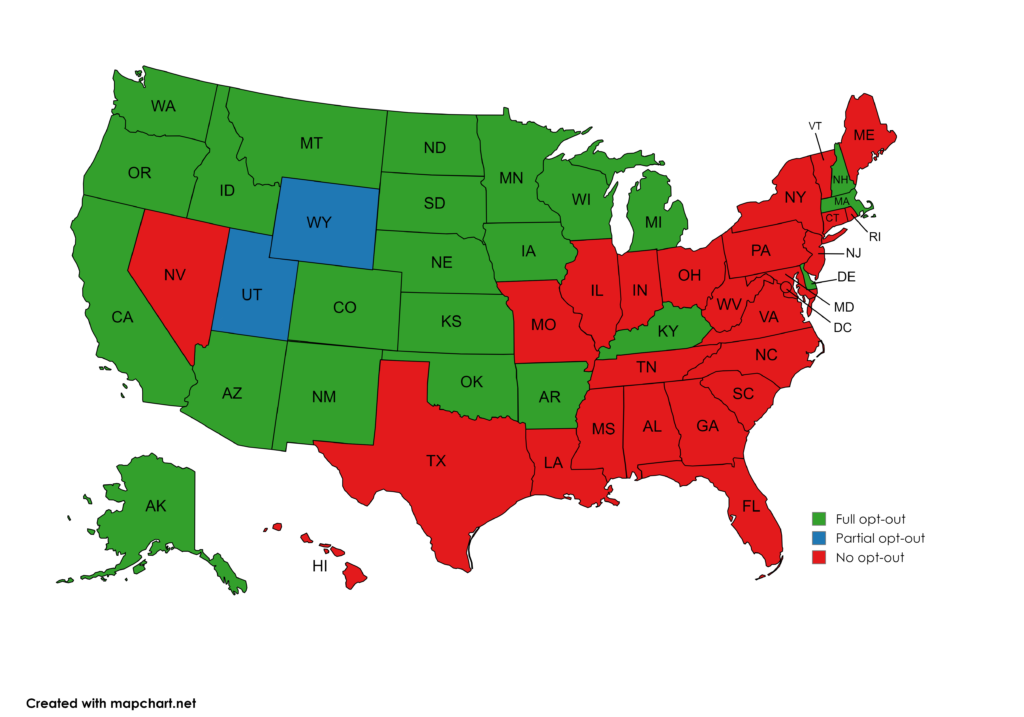Practice in Your State
Vermont Practice Law & Requirements
Are advanced degrees currently required?
Are advanced degrees currently required?
To be eligible for an APRN license, an applicant shall:
(a) have a degree or certificate from a Vermont graduate nursing program approved by the Board or a graduate program approved by a state or a
national accrediting agency that includes a curriculum substantially equivalent to programs approved by the Board. The educational program shall meet the educational standards set by the national accrediting board and the national certifying board. Programs shall include a supervised clinical component in the role and population focus of the APRN’s certification. The program shall prepare nurses to practice advanced nursing as a nurse practitioner, certified nurse midwife, certified nurse anesthetist or clinical nurse specialist in psychiatric/mental health nursing and shall include, at a minimum, graduate-level courses in:
(1) advanced pharmacotherapeutics;
(2) advanced patient assessment; and
(3) advanced pathophysiology.
(b) hold a degree or certificate from an accredited graduate-level educational program preparing the APRN for one of the four recognized APRN roles and have educational preparation consistent with the APRN’s certification, role, population focus, and specialty practice.” [Vermont Administrative Rules, Part 15, sec. 15.6]
Out-of-State Applicants: “(a) Applicants with an active unencumbered APRN license in good standing in another U.S. jurisdiction may be issued a Vermont APRN license provided:
(1) they are certified as outlined in these rules;
(2) they meet the practice requirement; and
(3) they have successfully completed the courses listed in section (b) of
this rule.
(b) Applicants from another jurisdiction must have the following graduate level
courses before they will be eligible for an APRN license
(1) advanced pharmacotherapeutics;
(2) advanced patient assessment; and
(3) advanced pathophysiology.
(c) Applicants shall comply with the requirements of Rule 15.14 regarding transition to practice and collaborative provider agreements.” [Vermont
Administrative Rules, Part 15, sec. 15.40]
Is there an explicit new graduate provision?
Is there an explicit new graduate provision?
No reference.
APRNs, including CRNAs, may not practice in Vermont prior to passing the certification examination, effective July 2011.
Do dentists require a permit/training to use a CRNA?
Do dentists require a permit/training to use a CRNA?

Do CRNAs have prescriptive authority?
Do CRNAs have prescriptive authority?

New DEA MATE Act Requirements
Congress has passed the MATE Act requiring all CRNAs who need to renew or are applying for a DEA license to complete a one-time training (totaling 8 hours) on managing patients with substance use disorders. View our FAQs below to learn more about this requirement and for information about our new DEA Bundle to help you meet this requirement.
FAQs
- Who is required to complete these requirements?
CRNAs renewing their DEA license or applying for an initial DEA license. - Can AANA help me fulfill these requirements?
Yes, AANA has developed a collection of CE offerings to satisfy these requirements which includes 8 Class A CE (designated as 8 pharmacology credits). This bundle will be available to stream starting June 7 but can be preordered through CKN. - When do I need to complete these requirements?
Starting on June 27, 2023, all CRNAs who are applying for a new DEA license or are renewing their DEA license. - The AANA is not listed as an approved provider. Will CE offered by the AANA meet this requirement?
Yes, through our accreditation with the American Nurses Credentialing Center (ANCC), AANA meets the requirements to offer these CE credits. - How do I report the completion of this requirement?
CRNAs will self-report completion during their DEA licensing process. CRNAs who complete DEA Bundle through the AANA will receive individual certificates documenting the completion of the training. This should be retained as proof of training.
Do Anesthesiologist Assistants (AAs) have authority to practice?
Do Anesthesiologist Assistants (AAs) have authority to practice?

Has Vermont opted out of the federal supervision requirement?
Has Vermont opted out of the federal supervision requirement?

Are physician office settings regulated in my state?
Are physician office settings regulated in my state?

State Licensure
State Licensure
CRNAs are a type of “advanced practice registered nurse.”
The Vermont SBON R&R refer to both “endorsement” [Vermont Admin. Rules, Ch. 4, Subch. 8(IV)(B)] and “registration and endorsement” [Vermont Admin. Rules, Ch. 4, Subch. 8(IV)(C)(1)] as methods of recognition for APRNs in Vermont.